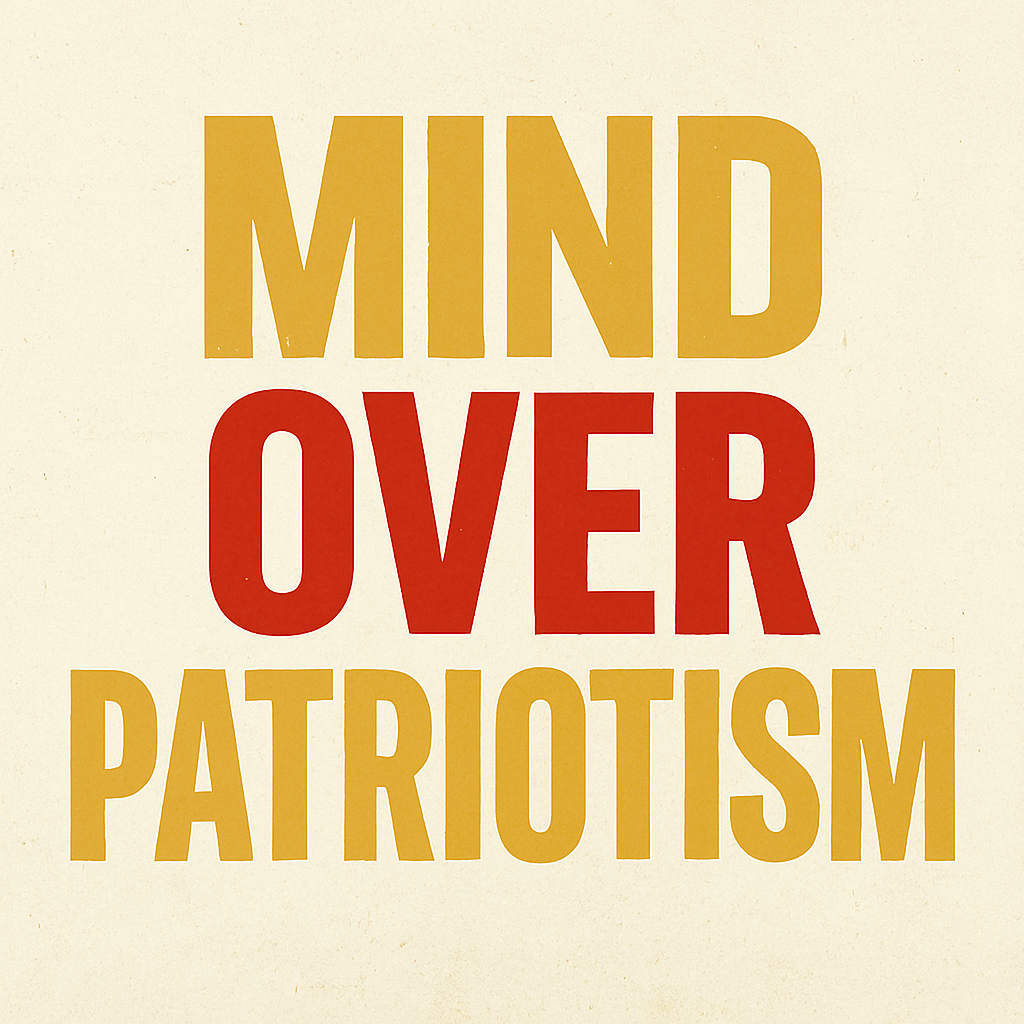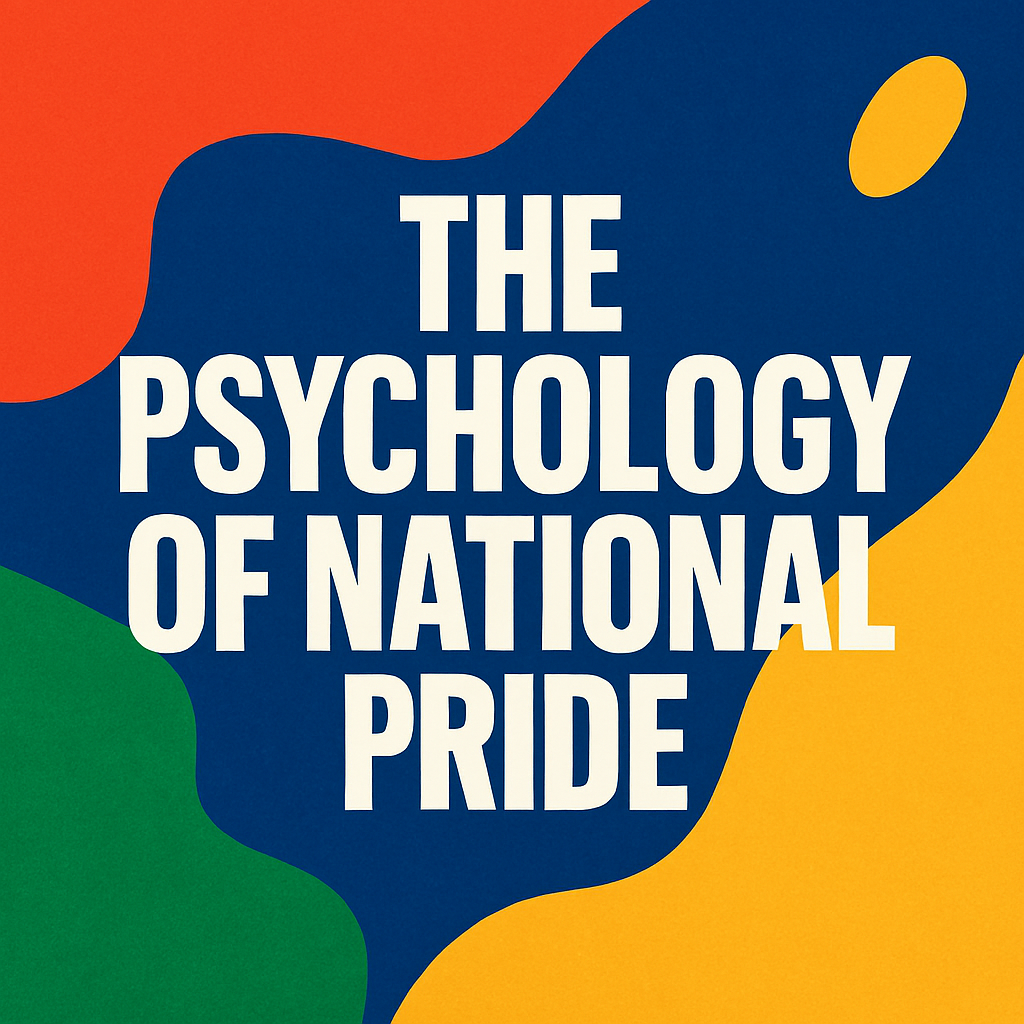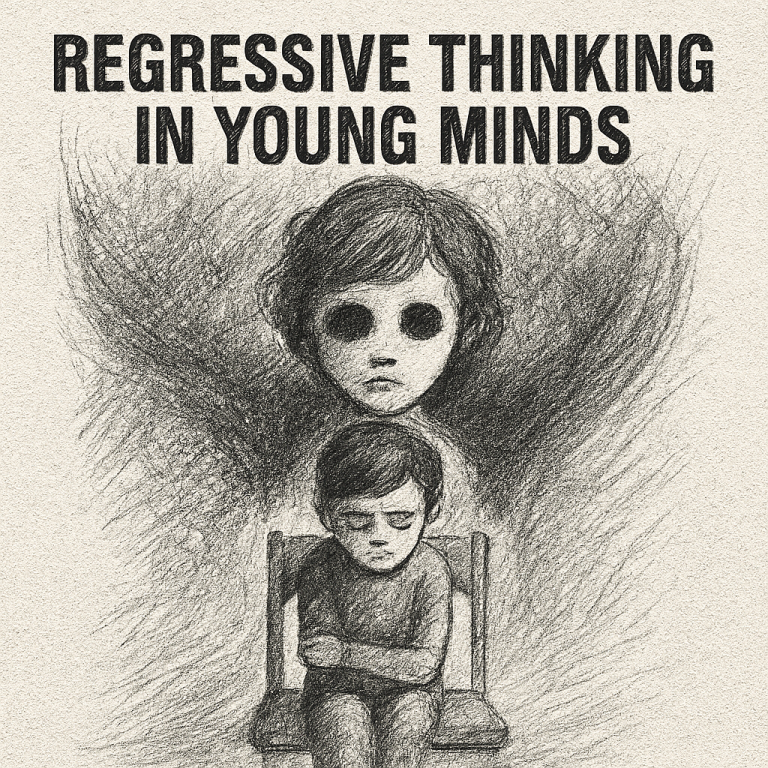The National Pride Psychology Of Modern Societies
National Pride Psychology
how national pride shapes identity why emotional belonging matters in modern societies and how does
National pride is one of the most powerful emotional forces in human society. It shapes how individuals see themselves, how they relate to others, and how they interpret the world around them. At its core, national pride is the emotional attachment a person feels toward their country, often expressed through symbols, rituals, language, and shared history. This attachment is not simply a matter of patriotism or loyalty. It is a deeply rooted psychological mechanism that fulfills the human need for belonging, continuity, and meaning. From early childhood, individuals are exposed to national narratives through education, media, and family traditions. These narratives form the foundation of collective identity, reinforcing the idea that one is part of something larger than oneself. National pride can unify diverse populations, inspire civic engagement, and foster resilience during times of crisis. However, it can also be manipulated to justify exclusion, aggression, or conformity. Understanding the psychology behind national pride requires examining how it is formed, how it functions, and how it evolves. This exploration draws on insights from political psychology, sociology, cultural studies, and neuroscience. It considers both the constructive and destructive potentials of national pride. By analyzing its emotional, cognitive, and social dimensions, we can better understand how national pride influences behavior, policy, and identity.

Identity Formation Through National Symbols
how national identity is internalised through visual and auditory cues why early exposure to symbols shapes lifelong emotional bonds
National pride begins with the formation of identity. From a young age, individuals are introduced to symbols that represent their nation, such as flags, anthems, and historical figures. These symbols are not neutral. They are emotionally charged, designed to evoke feelings of reverence, unity, and belonging. The repetition of these symbols in schools, public events, and media embeds them into the subconscious. Over time, they become part of the individual’s self-concept. This process is known as associative conditioning, where emotional responses are linked to specific stimuli. For example, hearing the national anthem may trigger a sense of solemnity or pride, even without conscious thought. These emotional associations are reinforced through collective rituals like national holidays, sporting events, and commemorations. The strength of national pride often correlates with the consistency and emotional intensity of these early exposures. However, the meaning of symbols can vary across groups. In multicultural societies, a flag may represent unity to some and exclusion to others. The inclusivity or exclusivity of national symbols plays a critical role in shaping the type of pride that emerges. Inclusive symbols foster a sense of shared identity across diverse populations. Exclusive symbols reinforce boundaries and hierarchies. The emotional impact of symbols is also influenced by their perceived authenticity. When symbols are seen as genuine reflections of national values, they evoke stronger pride. When they are perceived as propaganda, they may provoke cynicism or resistance.
| Symbol type | Function | Emotional effect |
|---|---|---|
| Flag | Visual anchor | Unity, reverence |
| Anthem | Auditory trigger | Solemnity, belonging |
| Historical figure | Narrative embodiment | Inspiration, validation |
| National holiday | Ritual reinforcement | Celebration, continuity |
| Monument | Spatial memory | Legacy, permanence |
Cultural Memory And Collective Narratives
how shared memory constructs national meaning why forgetting is as powerful as remembering
Cultural memory is the foundation of national pride. It consists of the stories, events, and symbols that a society chooses to remember and pass down. These memories are not objective records. They are curated narratives that emphasize certain events while omitting others. This selective remembering creates a coherent story that reinforces national identity. For example, a country may highlight its victories in war while downplaying its colonial past. These choices shape how citizens understand their place in history. The psychology of memory shows that emotionally charged events are more likely to be remembered and retold. National pride often draws on stories of resilience, sacrifice, and triumph. These stories are taught in schools, celebrated in media, and commemorated in public rituals. They become part of the emotional landscape of the nation. However, cultural memory can be confusing and also be a source of conflict. Different groups within a nation may remember the past differently. For some, a national holiday may represent liberation. For others, it may symbolize loss. Reconciling these differences requires inclusive storytelling that acknowledges multiple perspectives. When cultural memory is inclusive, it fosters empathy and shared pride. When it is exclusive, it deepens divisions. The process of remembering is also tied to forgetting. Societies often suppress memories that challenge the dominant narrative. This suppression can lead to historical amnesia, where important lessons are lost. A healthy national pride requires a balance between celebration and reflection. It must be rooted in truth, not myth.
| Memory type | Narrative focus | Impact on pride |
|---|---|---|
| Heroic memory | Triumph and resilience | Elevated pride |
| Traumatic memory | Loss and injustice | Defensive or solemn pride |
| Inclusive memory | Diversity and reconciliation | Transformative pride |
| Suppressed memory | Omitted conflict | Fragile or distorted pride |
| Reframed memory | Critical reinterpretation | Reflective pride |
Emotional Resonance And Symbolic Triggers
how national pride is activated through emotional cues why affective priming shapes collective behaviour
National pride is not just a belief. It is an emotional state that can be triggered by specific cues. These cues include symbols, rituals, language, and events that carry emotional weight. The psychological mechanism behind this is known as affective priming. When individuals are exposed to national symbols, their emotional responses are activated automatically. For example, watching a national team win a championship may evoke tears of joy, even in those who are not regular sports fans. These emotional responses are not random. They are shaped by past experiences, cultural narratives, and social reinforcement. Collective rituals amplify emotional resonance. Singing the national anthem at a public event creates a shared emotional experience. This shared emotion strengthens group cohesion and reinforces identity. The intensity of emotional response depends on context. In times of crisis, national pride may be expressed through solemn unity. In times of celebration, it may take the form of exuberant joy. Emotional resonance also varies across individuals. Those with strong national identification are more likely to experience intense pride. However, forced or performative displays of pride often fail to generate genuine emotion. Authentic pride arises from meaningful connection, not obligation. The emotional power of national pride can be harnessed for both positive and negative ends. It can inspire solidarity and sacrifice. It can also be manipulated to provoke fear or hostility. Understanding the emotional dynamics of pride is essential for ethical leadership and inclusive nation-building.
| Trigger type | Emotional response | Social effect |
|---|---|---|
| National victory | Joy, validation | Celebration, unity |
| National tragedy | Grief, resilience | Mourning, solidarity |
| Cultural ritual | Reverence, belonging | Participation, reflection |
| Symbol exposure | Nostalgia, pride | Identity reinforcement |
| Forced display | Discomfort, resistance | Alienation, cynicism |
Social Cohesion And Emotional Bonding
how national pride strengthens unity across diverse populations why shared emotion is essential during times of crisis
National pride plays a critical role in fostering social cohesion. It creates a shared emotional landscape where individuals feel connected despite differences in ethnicity, religion, or ideology. This emotional connection is especially vital during moments of national crisis. Whether facing war, natural disaster, or economic hardship, national pride can mobilize collective action and resilience. Governments often invoke pride to encourage unity and sacrifice, framing challenges as tests of national character. Psychologically, pride enhances trust in institutions and fellow citizens. It reduces social fragmentation by reinforcing common goals and values. Inclusive pride strengthens democratic participation and civic responsibility. It encourages people to volunteer, vote, and engage in public service. Exclusive pride, however, can undermine cohesion by marginalizing dissenting voices or minority groups. The effectiveness of pride in promoting unity depends on its emotional tone and symbolic framing. Pride that celebrates diversity and shared struggle fosters empathy and cooperation. Pride that demands conformity or suppresses difference breeds resentment and division. Rituals such as national holidays, public speeches, and symbolic gestures reinforce emotional bonding. These rituals create a sense of continuity and shared destiny. The emotional power of pride is amplified when it is expressed collectively. Singing an anthem in a stadium, mourning a tragedy together, or celebrating a victory as one nation all deepen the emotional ties that bind society.
| Cohesion factor | Pride expression | Social outcome |
|---|---|---|
| Inclusive pride | Diversity within unity | High trust, civic engagement |
| Exclusive pride | Conformity and exclusion | Division, alienation |
| Crisis mobilization | Emotional bonding | Compliance, resilience |
| Ritual participation | Shared emotion | Continuity, solidarity |
| Institutional trust | Pride in governance | Stability, cooperation |
Political Psychology And Ideological Framing
how pride is used to shape political identity why emotional loyalty influences voting behaviour
National pride is a powerful tool in political psychology. It influences how individuals align with ideologies, interpret policies, and respond to leadership. Politicians often appeal to national pride to legitimize their agendas, framing their platforms as extensions of national values. This emotional framing activates identity-based reasoning, where voters support policies that resonate with their sense of national virtue. Pride becomes a moral compass, guiding decisions through emotional loyalty rather than analytical evaluation. Campaigns that evoke pride in national history, culture, or resilience often gain traction by tapping into collective memory. However, pride can also be manipulated to suppress dissent or justify exclusion. When framed as a loyalty test, national pride can polarize public discourse and marginalize opposition. Inclusive political pride fosters pluralism and democratic resilience. It encourages debate, participation, and reform. Exclusive political pride enforces conformity and punishes deviation. The emotional power of pride in politics is evident in moments of national celebration or crisis. Speeches, slogans, and imagery are carefully crafted to evoke pride and align it with political goals. The media plays a crucial role in amplifying these messages. Emotional narratives are more likely to be shared, remembered, and acted upon. Political pride can inspire civic engagement or entrench authoritarianism, depending on how it is framed and expressed.
| Political use case | Emotional strategy | Psychological effect |
|---|---|---|
| Campaign messaging | Pride in national values | Increased voter alignment |
| Policy framing | Moral elevation | Reduced critical scrutiny |
| Dissent suppression | Pride as loyalty test | Polarization, conformity |
| Inclusive politics | Pride in diversity | Democratic resilience |
| Symbolic leadership | Emotional storytelling | Trust, engagement |
Intergroup Dynamics And Social Boundaries
how pride influences perceptions of outsiders why national identity can both include and exclude
National pride shapes how individuals perceive and interact with social groups. It enhances in-group favoritism, where people show preference for those who share their national identity. This favoritism can foster solidarity and mutual support, but it can also create rigid boundaries that define who belongs and who does not. Outgroups—whether immigrants, minorities, or foreign nationals—may be viewed with suspicion or hostility when pride is framed in exclusionary terms. The psychological mechanism behind this is social identity theory, which posits that individuals derive self-worth from group affiliation. National pride strengthens this affiliation, but also heightens sensitivity to perceived threats. Media portrayal plays a critical role in shaping these dynamics. Positive representation of outgroups within national narratives can soften boundaries and promote empathy. Negative representation reinforces stereotypes and justifies exclusion. Educational systems also influence intergroup attitudes by either expanding or narrowing the definition of national identity. Inclusive pride promotes empathy, cooperation, and mutual respect. Exclusive pride reinforces boundaries and justifies hostility. The emotional tone of pride affects how individuals respond to diversity. Pride that celebrates shared values across cultures fosters integration. Pride that demands cultural conformity fosters segregation. Intergroup dynamics are also shaped by historical memory. Nations that acknowledge and integrate multiple narratives tend to foster more inclusive pride.
| Group type | Pride expression | Social outcome |
|---|---|---|
| In-group | Shared identity | Solidarity, trust |
| Outgroup (inclusive) | Expanded national definition | Empathy, cooperation |
| Outgroup (exclusive) | Narrow identity framing | Suspicion, discrimination |
| Media portrayal | Symbolic inclusion | Narrative empathy |
| Educational framing | Identity expansion | Reduced prejudice |
Moral Psychology And Ethical Reflection
how pride reflects national values and moral standards why ethical pride requires accountability and truth
National pride carries moral weight. It reflects and reinforces the ethical standards of a society. Pride in humanitarian achievements, environmental stewardship, or democratic institutions promotes moral behavior. Citizens feel elevated by their nation’s virtue and strive to embody those values. This moral contagion encourages civic engagement, volunteerism, and ethical decision-making. However, pride can also distort moral perception. When pride becomes unconditional, it may prevent critical reflection on historical injustices or current failures. Citizens may deny wrongdoing to preserve their emotional attachment to national identity. This denial undermines accountability and perpetuates harm. Ethical pride requires balance—celebrating achievements while acknowledging flaws. It involves a commitment to truth, justice, and continuous improvement. The framing of pride determines its moral impact. Pride rooted in transparency and equity fosters reform. Pride rooted in superiority or denial fosters complacency and moral stagnation. Public discourse plays a key role in shaping moral pride. Inclusive narratives that highlight ethical complexity promote reflection and growth. Exclusive narratives that glorify perfection promote rigidity and defensiveness. Moral pride is also shaped by education, media, and leadership. Ethical storytelling, critical pedagogy, and transparent governance all contribute to a healthier form of national pride.
| Moral dimension | Pride framing | Behavioral impact |
|---|---|---|
| Ethical pride | Celebration with accountability | Civic engagement, reform |
| Defensive pride | Denial of flaws | Complacency, moral rigidity |
| Transformative pride | Acknowledgment and growth | Activism, ethical evolution |
| Public discourse | Narrative complexity | Reflection, empathy |
| Leadership ethics | Transparent governance | Trust, moral alignment |
Educational Influence And Identity Development
how schools shape emotional attachment to the nation why curriculum design affects pride formation
Education is a foundational channel for cultivating national pride. Schools teach history, civics, and cultural values that shape emotional and cognitive development. The design of the curriculum—what is included, emphasized, or omitted—determines the emotional tone of national pride. Inclusive curricula highlight diversity, resilience, and ethical complexity. Exclusive curricula promote idealized narratives that discourage critical thinking. Pedagogical methods also matter. Interactive learning, debate, and reflective writing foster emotional intelligence and nuanced pride. Rote memorization and rigid instruction reinforce conformity and uncritical loyalty. Teachers play a pivotal role in framing national identity. Their language, tone, and openness to dialogue influence how students internalize pride. Educational psychologists advocate for reflective pride—where students learn to appreciate national achievements while critically engaging with challenges. This approach builds resilient citizens capable of navigating complex social landscapes. School rituals such as flag ceremonies, national songs, and commemorative events also shape emotional attachment. These rituals create continuity and reinforce symbolic meaning. The emotional impact of education on pride is long-lasting. Early experiences with national identity shape adult attitudes, voting behavior, and civic engagement. Inclusive education promotes empathy, pluralism, and democratic resilience. Exclusive education fosters rigidity, exclusion, and polarization.
| Educational element | Pride outcome | Psychological effect |
|---|---|---|
| Inclusive curriculum | Pride in diversity | Empathy, critical thinking |
| Exclusive curriculum | Idealized pride | Conformity, reduced reflection |
| Reflective pedagogy | Balanced pride | Emotional intelligence |
| Ritual reinforcement | Symbolic continuity | Identity anchoring |
| Teacher framing | Narrative influence | Long-term emotional impact |
Benefits And Drawbacks Of National Pride
how pride strengthens identity and unity why unchecked pride can lead to exclusion and distortion
National pride offers both psychological benefits and social risks. On the positive side, pride fosters emotional belonging, strengthens identity, and promotes civic engagement. It creates a shared narrative that unites individuals across diverse backgrounds. Pride encourages people to participate in public life, support institutions, and contribute to collective goals. It can inspire resilience during crises and motivate ethical action. Pride in humanitarian achievements, environmental stewardship, or democratic values reinforces moral behavior and social trust. It also provides emotional continuity, linking generations through shared symbols and rituals. When inclusive, pride promotes empathy, pluralism, and reflective citizenship.
However, national pride also carries potential drawbacks. When framed in rigid or exclusionary terms, pride can become a tool of division. It may justify discrimination, suppress dissent, or distort historical memory. Unquestioned pride can lead to denial of past injustices and resistance to reform. It may foster superiority complexes or defensive nationalism. Pride that demands conformity undermines diversity and critical thinking. In extreme cases, it can be weaponized to provoke hostility or justify aggression. The emotional intensity of pride makes it vulnerable to manipulation. Leaders, media, and institutions must balance pride with accountability and ethical reflection. A healthy national pride embraces complexity, celebrates achievement, and acknowledges imperfection. It evolves with society, remaining emotionally resonant and ethically grounded.
| Dimension | Benefit | Drawback |
|---|---|---|
| Emotional identity | Belonging, continuity | Rigidity, exclusion |
| Civic engagement | Participation, trust | Conformity, suppression |
| Moral behavior | Ethical pride, empathy | Denial, moral stagnation |
| Historical memory | Legacy, resilience | Distortion, amnesia |
| Social cohesion | Unity, solidarity | Polarization, hostility |
| Leadership impact | Inspiration, reform | Manipulation, propaganda |

Media Representation And Symbolic Amplification
how national pride is shaped by storytelling and emotional framing why media narratives influence identity and emotional response
Media plays a central role in shaping national pride. It amplifies symbols, narratives, and emotional cues that influence public sentiment. News coverage of national achievements, disasters, or celebrations triggers pride responses. Entertainment media also contributes by portraying national identity through film, music, and literature. Psychologically, media exposure creates emotional scripts that guide behavior. These scripts are reinforced through repetition and social validation. Media can promote inclusive pride by highlighting diverse voices and shared values. It can also promote exclusive pride by framing identity in narrow terms. The emotional tone of media coverage affects the intensity and direction of pride. Positive framing enhances pride and trust. Negative framing can lead to cynicism or defensive pride. Media literacy is essential for navigating these influences and cultivating authentic pride. Citizens must learn to critically engage with media narratives to avoid manipulation. The emotional power of media lies in its ability to evoke shared experience. A televised national event can unite millions in a single moment of pride. However, media can also distort reality, creating idealized or divisive images of the nation. The balance between emotional resonance and factual integrity determines the ethical impact of media-driven pride. Journalists, producers, and educators all play a role in shaping this balance.
| Media type | Narrative strategy | Emotional impact |
|---|---|---|
| News coverage | Symbolic amplification | Immediate pride response |
| Entertainment media | Cultural storytelling | Identity reinforcement |
| Media literacy | Critical engagement | Authentic pride cultivation |
| Social media | Viral emotion | Rapid emotional bonding |
| Documentary | Reflective narrative | Historical empathy |
Sports And Symbolic Victory
how athletic achievement becomes a metaphor for national identity why collective celebration strengthens emotional bonds
Sports are a potent trigger for national pride. International competitions like the Olympics or World Cup evoke intense emotional responses. Psychologically, sports offer symbolic victories that validate national identity. Athletes become embodiments of national values such as perseverance, excellence, and unity. The collective experience of cheering for a national team creates emotional bonding. This bonding enhances social cohesion and reinforces pride. Sports also provide narratives of redemption, resilience, and triumph that resonate with cultural memory. These narratives are amplified by media coverage, public rituals, and symbolic gestures. The emotional impact of sports on national pride is amplified when victories are framed as national achievements. Athletes are celebrated not just for their skill but for representing the spirit of the nation. However, pride in sports can become problematic when it leads to nationalism or exclusion. Ethical sportsmanship and inclusive representation are key to maintaining healthy pride. The emotional power of sports lies in its ability to unite people across differences. A diverse team winning on the world stage can symbolize national unity. Conversely, exclusionary practices or politicized sports can deepen division. The symbolism of sports extends beyond the field. It influences how citizens perceive themselves and their nation. Pride in athletic achievement becomes pride in national character.
| Sports context | Symbolic meaning | Emotional outcome |
|---|---|---|
| International win | National validation | Celebration, unity |
| Diverse team | Inclusive representation | Empathy, pride |
| Ethical conduct | Moral pride | Respect, admiration |
| Media coverage | Amplified emotion | Shared experience |
| Politicized sport | Nationalism trigger | Division, defensiveness |
Trauma And Resilience In National Identity
how pride is shaped by collective suffering and recovery why emotional healing strengthens symbolic continuity
National pride is often forged in the crucible of trauma. Wars, natural disasters, and social upheavals leave emotional scars that shape national identity. The process of recovery becomes a source of pride, symbolizing resilience and unity. Psychologically, shared suffering creates deep emotional bonds. Citizens who endure hardship together often develop a stronger sense of belonging. National pride in this context is solemn, reflective, and enduring. It is expressed through memorials, anniversaries, and public rituals. These expressions serve as emotional anchors, helping individuals process grief and reaffirm identity. The narrative of resilience becomes central to national storytelling. It highlights the ability to overcome adversity and rebuild. However, trauma can also distort pride. If suffering is used to justify aggression or exclusion, pride becomes defensive and rigid. Healing requires inclusive remembrance and ethical reflection. Acknowledging all voices in the story of trauma fosters empathy and unity. The emotional power of pride in resilience lies in its capacity to inspire hope. It reminds citizens that they are part of a legacy of endurance. This legacy becomes a source of strength in future challenges. The psychology of trauma and pride reveals the importance of symbolic continuity. Nations that integrate suffering into their identity with honesty and compassion build deeper emotional foundations.
| Trauma context | Pride expression | Emotional effect |
|---|---|---|
| War remembrance | Solemn unity | Grief, resilience |
| Natural disaster | Recovery narrative | Hope, solidarity |
| Social upheaval | Ethical reflection | Empathy, reform |
| Inclusive memory | Shared suffering | Emotional bonding |
| Defensive pride | Justified exclusion | Rigidity, division |
Global Comparison And Cultural Variation
how pride differs across national contexts why cultural framing shapes emotional tone and expression
National pride is not uniform across the globe. It varies based on historical experience, cultural values, and political systems. In some countries, pride is rooted in military strength. In others, it is based on humanitarianism or innovation. These differences reflect the cultural framing of identity. Psychologically, pride is shaped by the stories a nation tells about itself. These stories are influenced by education, media, and leadership. Comparative studies show that pride in democratic societies tends to be more inclusive and reflective. Pride in authoritarian contexts may be more rigid and performative. Cultural values also influence the emotional tone of pride. Collectivist cultures emphasize shared achievement and unity. Individualist cultures highlight personal freedom and national uniqueness. The symbols used to evoke pride differ as well. Some nations rely on historical monuments. Others use contemporary achievements in science or art. The emotional impact of pride depends on its alignment with lived experience. When pride reflects reality, it strengthens identity. When it contradicts experience, it creates dissonance. Global comparison reveals the importance of context in shaping pride. It shows that pride is not just an emotion but a cultural construct. Understanding these variations helps foster international empathy and cooperation.
| National context | Pride foundation | Emotional tone |
|---|---|---|
| Military legacy | Strength and sacrifice | Solemn, assertive |
| Humanitarian focus | Compassion and service | Reflective, inclusive |
| Innovation pride | Creativity and progress | Aspirational, dynamic |
| Democratic pride | Pluralism and debate | Balanced, participatory |
| Authoritarian pride | Conformity and control | Rigid, performative |
Symbolic Rituals And Emotional Continuity
how rituals reinforce pride through repetition and shared meaning why symbolic acts create emotional anchors in identity
Rituals are the heartbeat of national pride. They provide structure, repetition, and emotional resonance that reinforce identity. From flag-raising ceremonies to national holidays, rituals create continuity across generations. Psychologically, rituals serve as emotional anchors. They evoke feelings of reverence, belonging, and stability. The repetition of symbolic acts embeds pride into the subconscious. These acts are often tied to specific dates, locations, or narratives. For example, commemorating independence day reinforces the story of liberation. Singing the anthem before a public event affirms unity. Rituals also serve as emotional regulation tools. They help individuals process complex feelings such as grief, joy, or hope. The power of ritual lies in its ability to transform abstract values into tangible experience. Inclusive rituals invite participation from all groups, strengthening cohesion. Exclusive rituals reinforce boundaries and hierarchy. The design and framing of rituals determine their emotional impact. Rituals that evolve with society remain relevant and resonant. Those that stagnate may lose meaning. Symbolic rituals are also sites of negotiation. Citizens may reinterpret or challenge traditional rituals to reflect contemporary values. This negotiation is part of the emotional evolution of pride. It ensures that pride remains connected to lived experience and ethical reflection.
| Ritual type | Symbolic function | Emotional outcome |
|---|---|---|
| Flag ceremony | Visual affirmation | Reverence, unity |
| National holiday | Historical continuity | Celebration, reflection |
| Anthem performance | Auditory bonding | Solemnity, pride |
| Public commemoration | Shared mourning | Grief, solidarity |
| Inclusive ritual | Participatory identity | Empathy, cohesion |
Generational Transmission And Emotional Legacy
how pride is passed down through family and tradition why emotional inheritance shapes national continuity
National pride is not only taught in schools or reinforced by media. It is also transmitted through families, traditions, and generational storytelling. Parents and grandparents play a crucial role in shaping how children perceive their nation. Through stories, rituals, and emotional cues, pride becomes part of the family identity. This transmission is often subtle but powerful. A child who watches their parent stand solemnly during the anthem learns reverence. A grandparent sharing stories of wartime resilience instills admiration. These emotional legacies shape how individuals relate to national symbols and narratives. The psychology of generational transmission reveals that early emotional experiences have lasting effects. Pride that is nurtured through love, reflection, and inclusion becomes resilient. Pride that is imposed through fear or conformity becomes fragile. Families also serve as sites of negotiation. Children may challenge or reinterpret the pride they inherit. This negotiation is part of the emotional evolution of national identity. Traditions such as holiday gatherings, commemorative meals, or storytelling rituals reinforce symbolic continuity. These acts create emotional anchors that link past, present, and future. The strength of generational pride depends on its emotional authenticity. When pride is rooted in genuine experience and ethical reflection, it endures. When it is disconnected from reality, it fades.
| Transmission method | Emotional mechanism | Identity outcome |
|---|---|---|
| Family storytelling | Emotional inheritance | Continuity, reverence |
| Ritual participation | Symbolic bonding | Belonging, stability |
| Generational memory | Narrative layering | Depth, resilience |
| Emotional modeling | Observational learning | Internalised pride |
| Intergenerational dialogue | Reflective negotiation | Adaptation, empathy |
National Pride And Mental Health
how pride influences psychological wellbeing why emotional connection to identity affects resilience
National pride has measurable effects on mental health. A strong sense of belonging and identity contributes to psychological resilience. Individuals who feel connected to their nation often report higher levels of life satisfaction, optimism, and emotional stability. Pride provides a framework for meaning, especially during times of personal or societal stress. It offers emotional grounding and a sense of continuity. However, pride can also become a source of distress. When national identity is contested, suppressed, or politicized, individuals may experience anxiety, alienation, or identity confusion. The emotional tone of pride matters. Inclusive pride fosters self-esteem and social trust. Exclusive pride can lead to defensiveness, isolation, and hostility. Mental health professionals recognize the role of cultural identity in emotional wellbeing. Therapeutic approaches often incorporate narrative identity, helping individuals connect personal stories to collective meaning. National pride can serve as a protective factor against depression and trauma. It can also be a risk factor when tied to rigid or exclusionary beliefs. The balance between pride and reflection is essential. Pride that allows for complexity and growth supports mental health. Pride that demands perfection or conformity undermines it. Emotional literacy, cultural empathy, and symbolic resilience are key components of healthy national pride.
| Psychological factor | Pride influence | Mental health outcome |
|---|---|---|
| Belonging | Emotional grounding | Stability, optimism |
| Identity clarity | Narrative coherence | Resilience, confidence |
| Exclusion | Identity conflict | Anxiety, alienation |
| Reflective pride | Ethical complexity | Growth, emotional literacy |
| Rigid pride | Defensive emotion | Isolation, distress |
Economic Identity And National Achievement
how pride is shaped by economic success and innovation why symbolic prosperity influences emotional attachment
Economic identity plays a significant role in shaping national pride. Citizens often associate pride with their nation’s achievements in industry, technology, and innovation. Economic success becomes a symbol of competence, resilience, and global relevance. Psychologically, pride in economic achievement reinforces self-worth and collective confidence. It validates the belief that the nation is capable, forward-thinking, and respected. This pride is expressed through admiration for national brands, infrastructure, and global influence. However, economic pride can also mask inequality. When prosperity is unevenly distributed, pride may become performative or exclusionary. Citizens who feel left behind may experience resentment or detachment. Inclusive economic pride acknowledges both achievement and challenge. It celebrates innovation while advocating for equity. The emotional impact of economic pride depends on its symbolic framing. Pride in sustainable development fosters ethical identity. Pride in unchecked growth may provoke environmental or social concern. Economic narratives are shaped by media, education, and leadership. They influence how citizens perceive their nation’s trajectory and their role within it. Pride in economic identity is strongest when it aligns with lived experience. When citizens see tangible benefits and ethical progress, pride deepens. When they see contradiction or exploitation, pride erodes.
| Economic symbol | Pride narrative | Emotional effect |
|---|---|---|
| National brand | Innovation and excellence | Admiration, confidence |
| Infrastructure | Competence and progress | Trust, pride |
| Global influence | Relevance and leadership | Validation, optimism |
| Sustainable growth | Ethical prosperity | Reflective pride |
| Economic disparity | Uneven achievement | Alienation, cynicism |

Environmental Identity And Ecological Stewardship
how pride is shaped by environmental values and legacy why ecological responsibility reinforces ethical identity
Environmental identity is an emerging dimension of national pride. Citizens increasingly associate pride with their nation’s commitment to ecological stewardship. Pride in clean energy, conservation, and biodiversity reflects ethical values and long-term thinking. Psychologically, environmental pride reinforces a sense of responsibility and legacy. It connects personal wellbeing to collective sustainability. This pride is expressed through admiration for national parks, green policies, and ecological innovation. It fosters emotional attachment to landscapes, species, and ecosystems. Environmental pride also influences behavior. Citizens who feel proud of their nation’s ecological efforts are more likely to engage in sustainable practices. However, pride can be undermined by environmental degradation or policy failure. When national identity is tied to exploitation or denial, pride becomes defensive or hollow. Inclusive environmental pride acknowledges both achievement and challenge. It celebrates progress while advocating for accountability. The emotional power of environmental pride lies in its symbolic depth. It links identity to place, ethics, and future generations. Educational systems, media, and leadership play key roles in shaping this pride. Rituals such as tree planting, conservation days, and ecological storytelling reinforce emotional connection. Environmental pride is strongest when it reflects lived experience and ethical commitment.
| Environmental symbol | Pride expression | Emotional outcome |
|---|---|---|
| National park | Landscape reverence | Awe, belonging |
| Green policy | Ethical governance | Trust, responsibility |
| Biodiversity | Ecological richness | Admiration, stewardship |
| Sustainable innovation | Future-oriented pride | Hope, engagement |
| Environmental denial | Defensive identity | Conflict, dissonance |
Conclusion
why national pride must evolve with ethical reflection how emotional intelligence strengthens symbolic identity
National pride is a complex and powerful emotional force. It shapes identity, behavior, and social cohesion across generations. When cultivated with empathy, reflection, and inclusivity, pride becomes a source of resilience and unity. It inspires citizens to engage, to care, and to build. When manipulated or distorted, pride can become rigid, exclusionary, and harmful. The psychology of national pride reveals that emotion and identity are inseparable. Pride is not just about what a nation has achieved. It is about how those achievements are remembered, shared, and symbolized. It is about the stories we tell, the rituals we perform, and the values we uphold. A healthy national pride embraces complexity. It celebrates without denying. It reflects without fragmenting. It evolves without losing meaning. Emotional intelligence, ethical storytelling, and symbolic continuity are essential tools for cultivating pride that heals, connects, and endures. As nations face new challenges, the emotional architecture of pride must adapt. It must include all voices, honor all truths, and inspire all generations.
Join The Discussion
how pride can be reimagined through dialogue and creativity why symbolic storytelling matters in shaping future identity
National pride is not a fixed emotion. It is a living conversation. You are part of that conversation. Whether through art, education, activism, or storytelling, your voice shapes how pride is felt and understood. Reflect on the symbols that move you. Challenge the narratives that exclude. Celebrate the rituals that unite.
#Hashtags #NationalPride #EmotionalIdentity #SymbolicContinuity #InclusiveNarratives #CulturalMemory #EthicalPatriotism #ResilientSocieties #PsychologyOfBelonging #GenerationalPride #EcologicalIdentity








This was very well laid out and easy to follow.